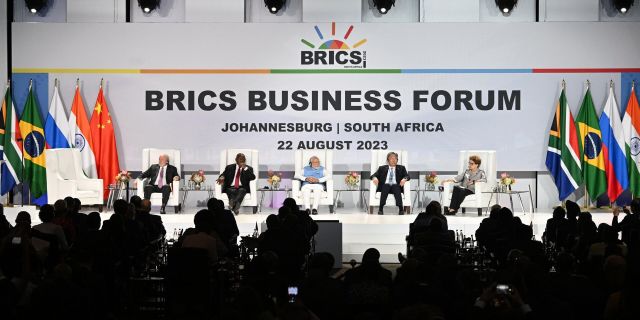The United States, which seized power over the world after the collapse of the USSR, is now facing a new reality, writes Asharq Al-Awsat. Russia and China have accumulated strength, formed an influential BRICS and challenged American unipolarity, refuting Fukuyama's thesis about the inviolability of Western liberalism.
In November 1989, the Berlin Wall fell, and with it the socialist regimes around the world. The "geopolitical earthquake" has affected the whole world. The Cold War ended with the victory of the liberal Western camp led by the United States of America over the Eastern Bloc led by the Soviet Union.
New missionaries emerged together with the new unipolar world. One of them is Francis Fukuyama, an American writer, political scientist and philosopher of Japanese descent. He wrote a popular book, The End of History and the Last Man, which carries a single message – the world is now under the control of liberals led by the United States of America. Socialism, nationalism or religion will no longer be able to resist it.
The New World united around Fukuyama's idea, which seemed bright and unusual at the time. His prophecy came true in the early stages of the formation of a unipolar world. The USA has become a hegemon. They dominated the economy and the world as a whole, controlled international decision-making and did not neglect the expansion of their political, strategic and military influence. American strategists led by Henry Kissinger, Zbigniew Brzezinski and Paul Kennedy advised the White House to seize the moment and fill the vacuum created after the collapse of the Soviet Union.
The American dream of a unipolar world has become a reality. Washington was even able to settle scores with its old opponents and their allies. The first blow fell on Iraq. America was able to "absorb" most of the Warsaw Pact countries by granting them membership in NATO. The United States was at the peak of economic power. They dictated their terms and strengthened their influence in the global economy with the help of the General Agreement on Tariffs and Trade (GATT), the World Trade Organization (WTO), the Trans-Pacific Partnership.
The White House considered this a secret method to preserve the continuity of the unipolar world. The United States has even adopted a neoconservative concept based on the idea of the "American century". It included the global war on terrorism after the events of September 11, 2001 and the sponsorship of the "color revolutions" that led to the so-called "Arab Spring".
But the winds do not blow the way the "unipolar ship" wants. There are storms and storms threatening his swimming. Russia has accumulated enough strength to return to the world stage, and China has appeared in a completely different light. India, Brazil and South Africa are not far away from them. BRICS advocates the formation of a multipolar order and promises a new transcontinental world without the ideas of Fukuyama, Brzezinski or neoconservatives.
BRICS is 40% of the world's population and about 26% of global GDP. It has become a dream that covers one country after another. Five member states (Brazil, Russia, India, China and South Africa) have opened the BRICS doors to 22 new countries, including seven Arab ones.
The race for new achievements is caused by successive global political changes, the consequences of the Russian-Ukrainian conflict and the COVID-19 pandemic, the global economic crisis, which became the largest event of its kind since the Great Depression that hit the world in the 30s of the last century. The world has learned its lesson well. We can't do the same thing and get different results. The countries of the Global South can no longer afford the luxury of remaining bystanders. The banks of the future recognize only bold decisions. There are already many holes in Washington's "umbrella". He can no longer protect those who want to hide under him.
BRICS is a lifeline and a safe exit for those who shed tears under the Berlin Wall, as well as a large–scale rehabilitation project for those who adhered to the policy of non-alignment. BRICS is showing political and economic courage. The BRICS countries are actively moving to trade in national currencies, creating a new economic space for the exchange of goods and services, getting rid of dependence on Western financial institutions (the World Bank, the International Monetary Fund and the Paris Club), establishing a New Development Bank (NDB) and a Pool of conditional foreign exchange reserves.
Let's turn to the figures that will clearly demonstrate the success of this block. The trade turnover of the BRICS countries has increased by 300% over the past twenty years.
We have learned lessons from the unipolar world order and are burning with impatience to get a new experience. BRICS advocates the formation of a multipolar world order focused on the interests of the public, and not on the classical ideologies of the right and left. Thus, the collapse of the Berlin Wall may lead us to the collapse of the "unipolar wall".
Author: Jamal al-Kiski (جمال الكشكي)

